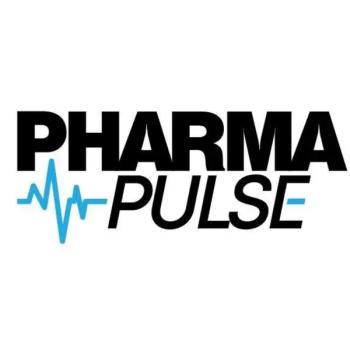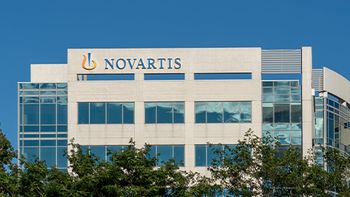
- Pharmaceutical Commerce - July/August 2010
Biopharma Cold Chain Logistics Market Is On its Way to $6 Billion Globally
Pharmaceutical Commerce’s updated Biopharma Sourcebook estimates a 2009 market of $5.9 billion, heading to $6.9 billion in 2012
Higher-than-average growth for specialty pharmaceuticals and vaccines, combined with heightened (and more expensive) regulatory requirements for pharma shipping worldwide, added up to a $5.9-billion global market for cold-chain logistics services in 2009, according to the 2nd edition of the Biopharma Cold Chain Sourcebook, published by Pharmaceutical Commerce. That was welcome news to many logistics companies who saw overall shipping activity (for all industries) plummet during the economic downturn of that year.
However, looking ahead, growth is going to moderate, averaging just under 8% (non-compounded) over the 2009-2015 period. That’s still several percentage points above projections for overall pharmaceutical sales growth over that period. Logistics spending for cold-chain products will be driven by increased volumes of products (Fig. 1)—with biosimilars kicking in in 2014 and beyond—and with faster pharma market growth in emerging economies that will seek the same products available in the industrialized world (Fig. 3).
“Increases in volumes of cold-chain pharmaceutical shipments do not track directly with increased sales,” comments Mark Lipowicz, a market analyst and co-author of the report, “because the newest high-value biotech drugs are also increasing in price by more than the industry average. Nevertheless, as their sales and volume both grow, and as regulatory requirements continue to tighten, the cost of delivering them will grow.
“There is some activity in making cold chain logistics more affordable through better technology,” Lipowicz goes on to say. A clear example of this is the effort by ocean shippers to capture some of the transoceanic business in cold chain pharma; ocean freight is orders of magnitude less expensive than air freight. In addition, there are ongoing efforts to make room-temperature vaccines, and reformulated pharmaceuticals that don’t require refrigeration. “But it is still true,” he says, “that pharma companies will spend what’s necessary to ensure that their high-value products are maintained at controlled cold temperatures during transport.”
Import barriers
That’s all the more true as more countries adopt stiffer regulations, and as the industry itself updates regulations not only for cold-chain products, but also “controlled room temperature” (CRT) ones—some of which will now be insulated during shipment to ensure that “room temperature” was actually maintained. Canada, Saudi Arabia, Singapore, Malaysia and Argentina are among the countries that have made documentation of individual shipments of cold chain pharmaceuticals an entry requirement. Europe has updated its Good Distribution Practices guidance, and US organizations like US Pharmacopeia and the Parenteral Drug Assn. are updating and expanding their guidance.
The general direction of these regulations is to formalize temperature-controlled shipping so that a continuous record is maintained from point of manufacture to point of dispensing. In the US, at least, this crosses several regulatory boundaries—FDA has little to do with retail or hospital pharmacies, for example, and so it imposes requirements on manufacturers to assure safe delivery. Manufacturers, in turn, write contract terms with their logistics providers to ensure tighter control of shipping conditions, and they, passing the requirements along, seek better service from trucking and air-freight companies (Fig. 4). All along this value chain, vendors are popping up with new or upgraded services.
In the past year, Singapore-based ocean shipper APL announced the SmarTemp system for monitoring onboard refrigerated containers via satellite communications; DB Schenker and Kirsen Security partnered to offer a land- and sea-based tracking system; DHL has garnered QEP (Qualified Envirotainer Partner) certification from Envirotainer, the developer of powered unit-load devices for aircraft; and FedEx introduced a tracking service called SenseAware; to name a few. Cold storage capacity expressly for pharma has been announced by UPS, Marken, World Courier, Ocasa Logistics, MD Logistics and others. Last September, industry attendance was up by nearly 50%, and exhibitor count by 100% at the Cold Chain Distribution forum, according to sponsor IQPC (the 2011 meeting will be held Sept. 26-29 in Philadelphia; see iqpc.com.)
Clinical logistics growth slowing
One exception to the ramp-up is clinical trial logistics, which the Sourcebook projects will grow only slightly, from $2.6 billion in 2009 to $2.8 billion by 2015. (Defining the cold-chain portion of this goes beyond the scope of the Sourcebook, but if the ratio for all pharma shipping—with 12% being cold-chain-related—holds, the cold chain portion of clinical trial logistics was around $310 million in 2009, but is probably higher due to the greater complexity of clinical.) The volume of clinical trials peaked in 2009, according to NIH and other data sources; in addition, for clinical trials are conducted outside North America and Europe, logistics providers are creating efficient local infrastructures that will tend to reduce costs. But the possible entrance of biosimilars during the middle of this decade could change that dynamic.
Other drivers are affecting the shape, if not the volume, of temperature-controlled pharma shipping. One trend is the push for greener shipping practices, which calls for use of recyclable materials (or more recycling of the shipping containers themselves). Another is the potential impact of US Transportation Security Administration’s (TSA) intent to expand its pre-flight inspection of packages on inbound air freight flying on passenger aircraft; this is already in place for domestic or outbound air travel in the US, and requires shippers either to conduct their own, certified, inspection, or be subjected to packages being opened and inspected at the airport.
The 2011 BioPharma Cold Chain Sourcebook is available from Pharmaceutical Commerce (tel: 203 831 0711; e-mail at [email protected].) PC
Articles in this issue
almost 12 years ago
Industry group Rx-360 lays plans for expanding activities in Chinaover 12 years ago
Eagle Productivity opens new training center in Spainover 12 years ago
Pharma distribution channels crank up for flu seasonover 12 years ago
testalmost 13 years ago
Physician's sample closet unites branded, generic and OTC productsNewsletter
Stay ahead in the life sciences industry with Pharmaceutical Commerce, the latest news, trends, and strategies in drug distribution, commercialization, and market access.




